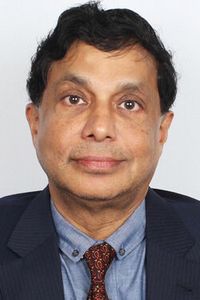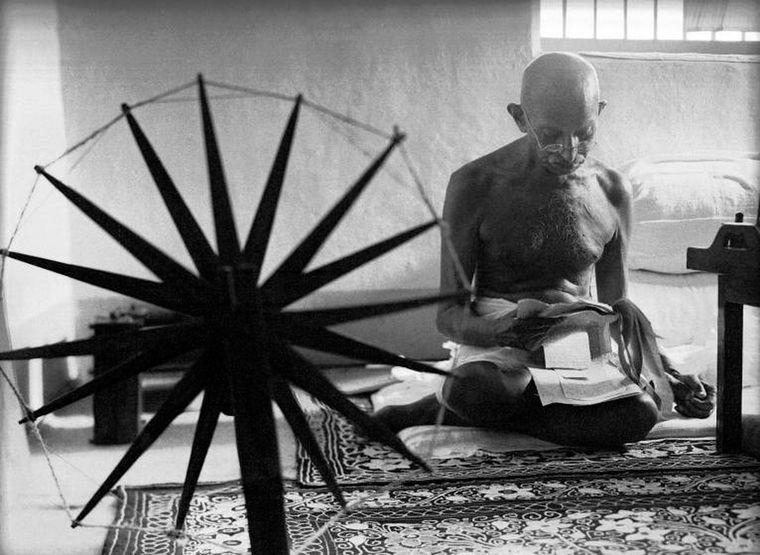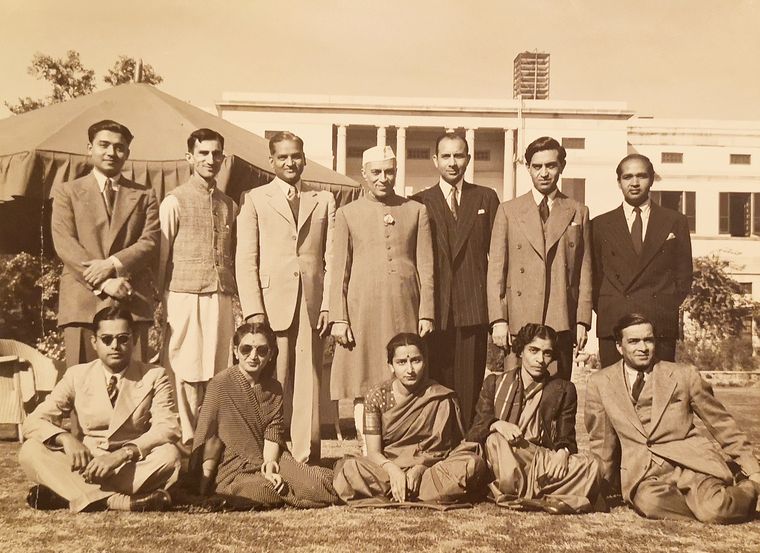Arthur Conan Doyle may well have described it as the curious incident of the prize that was not awarded. Seventy-five years after the Mahatma’s martyrdom, questions and a degree of puzzlement remain about why he never received the Nobel Prize for Peace in spite of the fact, as the later “opening” of the award archives indicated, he was nominated for it five times: in 1937, 1938, 1939, 1947 and in January 1948 itself, when his assassination occurred two days before the deadline for nominations that year.
As it turned out, there was no prize awarded in 1948 because the Nobel committee concluded there was “no suitable living candidate”. The phrasing appears to have been carefully chosen to suggest there would have been a unanimous awardee were he alive.
And there, matters may have rested, were it not for two particular conversations 12 years later and a number in the 10 months that immediately followed. Central to these was Vallilath Madhathil Madhavan Nair, ‘VMM’ to his seniors and subordinates in the Indian Civil, Indian Political and eventually Indian Foreign Service.
At the time this narrative begins, he was concluding his term as India’s ambassador to Cambodia on transfer to the embassy in Norway. VMM had been sent to Phnom Penh by Jawaharlal Nehru as an elder but unobtrusive counsel to Prince Norodom Sihanouk, whose global policies were often mercurial but who retained great respect and affection for India and its prime minister. The prince invited VMM and Mrs Nair to spend a few days with him and his wife Monique at the royal retreat in Siam Reap before they left Cambodia.
It was there one evening that the prince tuned in to the BBC World Service (in deference to his guest, rather than the French language stations he normally favoured) and heard the news that the Nobel Peace Prize committee had announced in Oslo that it had found no one deserving of the 1960 award. When the bulletin ended, the prince remarked it was a pity; if they had not found an immediately suitable nominee, why not undo the wrong of never having recognised Gandhi and do so now? VMM nodded agreement. The wheels in his mind had begun to spin.
Two weeks later he was in Delhi, calling on Nehru. The prime minister was expansive in the conversation about both Cambodia and Norway, his mind and phrase flitting between the two so swiftly that it was at times difficult for VMM to gauge to which country he was referring. Nehru spoke of his own fjords foray as a student in England and of the visit of the Norwegian prime minister to India in 1958. When there was finally a pause to the conversation, VMM brought up the subject that most preoccupied his mind. Could he, delicately, diplomatically, deftly, explore the possibility of a posthumous Nobel prize to Gandhi?
Nehru’s face softened, as it invariably did at the mention of the Mahatma’s name, but his tone, though still genial, was less gentle.
“Diplomats, Nair,” he replied, “are dual personalities. On the one hand they represent the convictions of the government that has appointed them. On the other, they represent the convictions they themselves hold. Where the two collide, there are problems. But where one serves the other without the other knowing, all is well.”
He rose from his chair and shook VMM’s hand. ‘Ha det bra,” he said with his familiar impish smile. “That’s ‘be well’ in Norwegian.”
Confronted by the code cable clarity of Nehru’s response, VMM concluded he had essentially been given the freedom to navigate uncharted waters in a capacity wholly personal until the result sought was realised. He prepared to do so, determined not to unwittingly embarrass anyone in the ministry in Delhi or the embassy in Norway by taking them into confidence.
He reached Oslo on December 10, 1960, the date the Nobel Prize would have been presented, were there one to present. The newspapers that morning were uplifting; disagreeing with the views of the nation’s military leadership, the Norwegian government had decided it would not acquire nuclear weapons.
VMM realised it would be gauche to approach members of the Nobel committee, and his efforts would need to be indirect. He had two persons in mind with whom to broach the subject. One was the prime minister, Einar Gerhardsen, whose visit to India two years earlier Nehru had recalled. Gerhardsen had earned in Norway the title Gandhi had in India, ‘Landsfaderen’, or ‘Father of the Nation.’
Protocol for meeting a prime minister can be tedious, but once Gerhardsen knew VMM was from Kerala, it was a morning call for an afternoon appointment. The prime minister had visited Kerala on his India visit and had boarded the research and experimental vessel named ‘Kalava’ which Norway had donated to Kerala fisheries. He and his wife had enjoyed that lovely land long before God realised it was his own country.
The other was Trygve Lie, the first secretary-general of the United Nations, who was now the county governor of Oslo. As secretary-general at the time of Gandhi’s assassination, Lie had ordered the flags of member states of the United Nations outside its premises to be lowered to half mast, a tribute hitherto reserved for heads of state, an echo of his words, “Gandhiji was not only the light of India, but the light of the whole world. I am not only sorry that he has passed away, but I am sorry that with him, human values have also gone.”
Between the two, undercurrent outreach was undertaken to members of the award committee. A lawyer by training, VMM offered quiet counter-arguments to objections that were raised. Yes, there was a preference not to give posthumous awards but the Literature prize, determined in Sweden, had been conferred on the Swedish author Erik Axel Karlfeldt in 1931, its announcement made six months after his death. Surely they would not want the one exception to the “no posthumous” norm to be from the host country for the award?
Yes, nominations were required from which awardees were chosen each year, but there was no such specific stipulation for a prize conferred for a year when it had not originally been awarded. The fact that there was no “winner” in 1960 made clear that none of the nominees that year was suitable. By implication, should the committee decide in 1961 to award the prize “reserved” from 1960, it had full freedom to decide upon a name independent of nominations.
Yes, there was the question of who would receive the money the award carried. But, as Martin Luther King had written after his visit to India in 1959, The Gandhi Memorial Trust (also known as the Gandhi Smarak Nidhi) collected some $130 million soon after the death of the father of the nation.
“This was,” King wrote, “perhaps the largest, spontaneous, mass monetary contribution to the memory of a single individual in the history of the world. This fund, along with support from the government and other institutions, is resulting in the spread and development of Gandhian philosophy, the implementing of his constructive programme, the erection of libraries and the publication of works by and about the life and times of Gandhi.” What better a recipient?
And so, by the middle of September 1961, Gandhi’s nomination for the deferred 1960 prize seemed certain.
Then came Ndola.
It was there, on September 18, that a plane crash claimed UN secretary-general Dag Hammarskjöld. He had received multiple nominations for the 1961 prize and the enormity of his death sealed his selection. Even as it effectively ended that of Gandhi for 1960.
The argument was simple: one posthumous award, possibly. But two announced at the same time? Never. The committee, conscious also of the criticism that Peace prize winners had been from Europe and the Americas, scrambled to find a living awardee for 1960. It settled upon the South African freedom fighter Albert Luthuli.
When VMM narrated this story to me, more than half a century later, he was not bitter. He had remained true to his unspoken promise to Nehru. If he continued to be silent after time’s tense had faded into the past, it was, as the poet C. Day-Lewis said, “not the silence after music, but the silence of no more music.”
He lived a full and blessed life, passing away a day short of 103, serene in the friendships he had made, many of which, like those with Gerhardsen and Lie, were nourished outside glare or glimmer in a cause they believed.
In an interview some years ago, VMM’s daughter Parvati, a scholar and professor in London, spoke of how she “collects photo frames and hoards them until I find the right photo. If I see a frame I like and it’s affordable I put it to use or give it away. I like the idea of the photo frame that has not been filled yet.” When she returns to the city of her birth, Oslo, I dare say she will find one, at least spiritually, in the Nobel Museum.
―Formerly of the Indian Foreign Service, the writer served at the UN for three decades.





